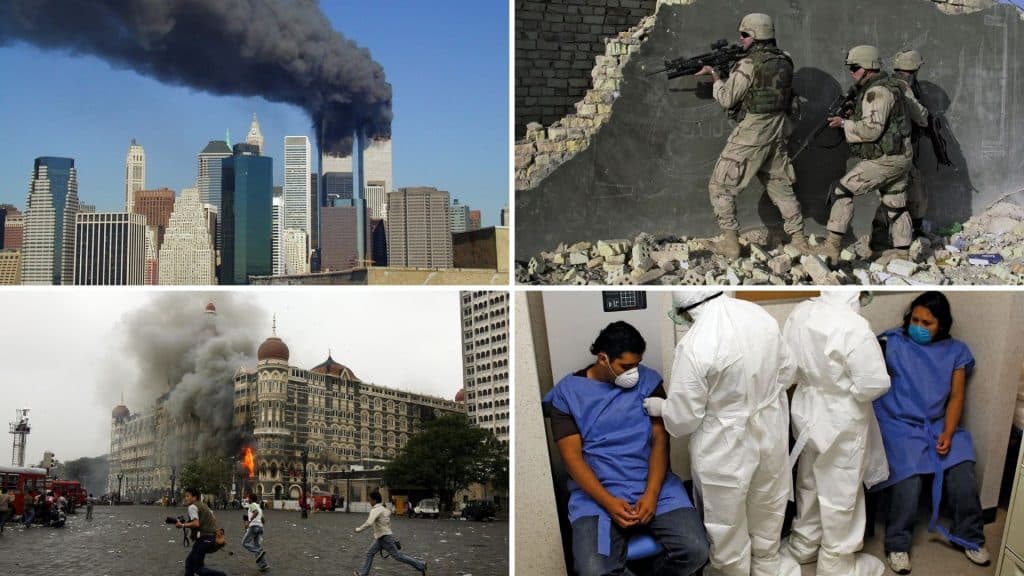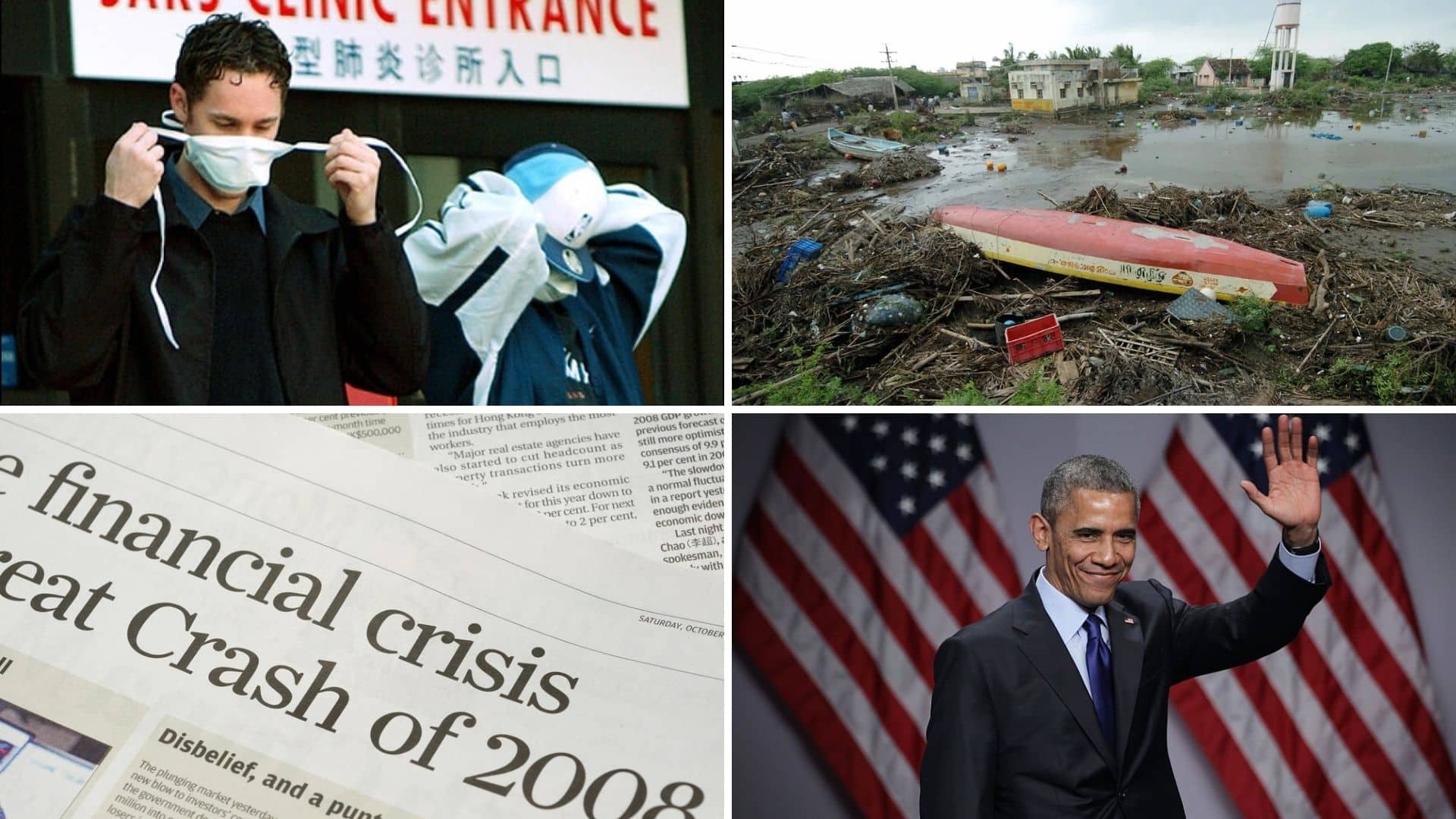Generation Z Timeline: Age Range and Key World Events
Ever wonder why Generation Z acts so differently from previous generations?
The answer lies in their unique timeline and the significant world events that shaped their childhood years during critical development.
This generation experienced some historical events that start with i and other major moments during their most formative developmental stages.
Today, they represent a diverse group balancing school, work, and early adulthood while adapting to constant change.
This comprehensive article reveals their exact age range, the key events that influenced their perspective, and how understanding their timeline explains why they think and behave differently from previous generations.
Generation Z Timeline: Age Range and Birth Years
Defining Generation Z depends on recognizing the years that set the boundaries of this emerging demographic.
Generation Z includes people born between the mid-to-late 1990s and early 2010s. Most experts agree that the birth years fall roughly between 1997 and 2012.
Current Age Range in 2025
Right now in 2025, Generation Z members are between 13 and 28 years old. This wide age range covers several life stages:
- Young teens (13-17 years): Still in high school, living with parents.
- College-age adults (18-22 years): Starting university or entering the workforce.
- Young professionals (23-28 years): Building careers, some starting families.
Why These Birth Years Matter?
Looking at these years highlights the common cultural markers that unify this generation’s identity. People born during these years grew up with smartphones, social media, and constant internet access.
They lived through major events like the 2008 recession, the COVID-19 pandemic, and climate change discussions.
How Generation Z Differs from Other Generations?
This age range sets Gen Z apart from Millennials (born 1981-1996) and Generation Alpha (born 2013-present).
The specific Generation Z timeline created a group that thinks differently about work, money, and technology compared to older generations.
Knowing this timeline helps businesses, educators, and parents connect better with this important generation.
Key World Events During Generation Z’s Formative Years

This section covers significant world events that occurred during Generation Z’s childhood and teenage years. These events influenced how this generation views safety, technology, economics, and global connections.
Diana, Princess of Wales, Dies (August 1997): Princess Diana’s tragic death in Paris created worldwide grief and changed media coverage forever. The car crash shocked millions globally. Her funeral became one of television’s most-watched events.
Hong Kong Handover (July 1997): Britain returned Hong Kong to China after 156 years of colonial rule. The ceremony marked a major shift in global politics. This transfer affected millions of residents and international businesses.
Asian Financial Crisis (July 1997): Economic collapse started in Thailand and spread across Asia rapidly. Many countries faced severe currency drops and recession. The crisis changed international financial policies permanently.
Euro Currency Introduced (January 1999): European countries adopted a shared currency for easier trade. Eleven nations replaced their national currencies with Euros. This change strengthened European cooperation and simplified business.
9/11 Terrorist Attacks (September 2001): Terrorists used hijacked planes to attack America, killing nearly 3,000 people. The attacks changed airport security and started global anti-terrorism efforts. This event transformed how countries handle security threats.
War in Afghanistan Begins (October 2001): America and allies invaded Afghanistan to fight terrorism. The military action targeted Al-Qaeda and Taliban forces. This conflict became America’s longest war, lasting over 20 years.
Launch of Wikipedia (January 2001): A free online encyclopedia was launched, allowing anyone to edit and share knowledge. The website became one of the most visited globally. Wikipedia changed how people access information and verify facts.
SARS Outbreak (November 2002): Deadly virus spread globally, causing travel restrictions and health scares. Over 8,000 people got infected across multiple countries. The outbreak improved international health monitoring systems significantly.
Iraq War Begins (March 2003): Coalition forces invaded Iraq and removed Saddam Hussein’s government. The war lasted until 2011 and cost thousands of lives. This action changed Middle Eastern politics for decades.
Indian Ocean Tsunami (December 2004): A Massive earthquake caused deadly waves across Southeast Asia, killing over 230,000 people. The disaster affected 14 countries and millions of residents. It permanently improved global tsunami warning systems.
Global Financial Crisis (September 2008): Major banks collapsed, causing a worldwide recession that affected jobs and housing. Millions lost their homes and employment globally. The crisis changed banking regulations in most countries.
Barack Obama Elected US President (November 2008): America elected its first African American president in a historic victory. His election inspired people worldwide and changed politics. Obama’s presidency marked progress in racial equality.
Mumbai Taj Hotel Attack (November 2008): Terrorists attacked multiple Mumbai locations, including the famous Taj hotel. Over 170 people died during the three-day siege. Television coverage showed how terrorism affects major cities.
H1N1 Flu Pandemic (April 2009): Swine flu spread globally, causing school closures and health alerts. Over one billion people got vaccinated against the virus. The pandemic improved international health cooperation significantly.
Chile Earthquake (February 2010): A Powerful 8.8 magnitude earthquake devastated Chile and created tsunami warnings. Nearly 600 people died, and thousands lost homes. The disaster improved earthquake building codes globally.
Norway Attacks (July 2011): An Extremist killed 77 people in the Oslo and Utøya Island attacks. The violence targeted government buildings and a youth camp. Norway focused on maintaining democratic values after the tragedy.
Aurora, Colorado Shooting (July 2012): Gunman attacked a movie theater during a Batman screening, killing 12 people. The shooting injured 70 others and traumatized the community. This event increased discussions about gun violence.
Impact of Major Events on Generation Z
The major world events that occurred during Generation Z’s childhood and teenage years left lasting effects on how this generation thinks and behaves.
| Impact Area | Major Events | How It Shaped Gen Z |
|---|---|---|
| Security & Safety | 9/11, School shootings, Terror attacks | Heightened security awareness, expect safety measures in public spaces, more cautious about personal safety |
| Financial Attitudes | 2008 Global Financial Crisis | More careful with money, prefer saving over spending, worry about job security |
| Technology Use | Natural disasters, Pandemics, and Social media growth | Use technology as a safety net, rely on smartphones for emergency info and communication |
| Global Awareness | Worldwide crises, Social media coverage | More globally minded, care about international issues, and feel responsible for solving world problems |
| Mental Health | Constant traumatic news exposure | Higher anxiety levels, more open about mental health, seek therapy and support |
| Trust in Authority | Government crisis responses | More critical of leadership, question official information, and trust peer networks over institutions |
Final Thoughts
Generation Z stands apart from previous generations because of the unique historical moments that shaped their formative years.
Their childhood timeline intersected with global crises, technological breakthroughs, and social changes that created something unprecedented.
From security concerns to financial caution, from digital fluency to global awareness, their worldview reflects intense experiences witnessed growing up.
Understanding this generation’s timeline helps explain their behaviors, preferences, and decision-making patterns.
Their responses to current challenges make sense when viewed through their childhood experiences.
As they continue entering the workforce and taking leadership roles, recognizing how their past shaped their present becomes essential for connections.
What moments from your own generation’s timeline shaped how you see the world today? Share your thoughts in the comments below.








